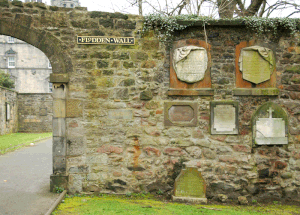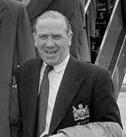
Back بوابة:إسكتلندا Arabic Портал:Шотландия Bulgarian Portál:Skotsko Czech Πύλη:Σκωτία Greek Portal:Escocia Spanish Atari:Eskozia Basque Portail:Écosse French Portal:Escocia Galician Portale:Scozia Italian Portal:Szkocja Polish
| Main Page | Selected articles 1 | Selected articles 2 | Selected biographies | Selected quotes | Selected pictures | Featured Content | Categories & Topics |
Introduction
 |

|
|

| ||
Scotland (Scots: Scotland; Scottish Gaelic: Alba) is a country that is part of the United Kingdom. It contains nearly one-third of the United Kingdom's land area, consisting of the northern part of the island of Great Britain and more than 790 adjacent islands, principally in the archipelagos of the Hebrides and the Northern Isles. To the south-east, Scotland has its only land border, which is 96 miles (154 km) long and shared with England; the country is surrounded by the Atlantic Ocean to the north and west, the North Sea to the north-east and east, and the Irish Sea to the south. The population in 2022 was 5,439,842. Edinburgh is the capital and Glasgow is the largest of the cities of Scotland.
The Kingdom of Scotland emerged as an independent sovereign state in the 9th century. In 1603, James VI of Scotland succeeded to the thrones of England and Ireland, forming a personal union of the three kingdoms. On 1 May 1707, Scotland and England unified and relinquished their independence to create the new Kingdom of Great Britain, with the Parliament of Scotland subsumed into the Parliament of Great Britain. In 1999 a Scottish Parliament was re-established, and has devolved authority over many areas of domestic policy. The country has its own distinct legal system, education system and religious history, which have all contributed to the continuation of Scottish culture and national identity. Scottish English and Scots are the most widely spoken languages in the country, existing on a dialect continuum with each other. Scottish Gaelic speakers can be found all over Scotland, however the language is largely spoken natively by communities within the Hebrides. The number of Gaelic speakers numbers less than 2% of the total population, though state-sponsored revitalisation attempts have led to a growing community of second language speakers.
The mainland of Scotland is broadly divided into three regions: the Highlands, a mountainous region in the north and north-west; the Lowlands, a flatter plain across the centre of the country; and the Southern Uplands, a hilly region along the southern border. The Highlands are the most mountainous region of the British Isles and contain its highest peak, Ben Nevis, at 4,413 feet (1,345 m). The region also contains many lakes, called lochs; the term is also applied to the many saltwater inlets along the country's deeply indented western coastline. The geography of the many islands is varied. Some, such as Mull and Skye, are noted for their mountainous terrain, while the likes of Tiree and Coll are much flatter. (Full article...)
Selected article

There have been several town walls around Edinburgh, Scotland, since the 12th century. Some form of wall probably existed from the foundation of the royal burgh in around 1125, though the first building is recorded in the mid-15th century, when the King's Wall was constructed. In the 16th century the more extensive Flodden Wall was erected, following the Scots' defeat at the Battle of Flodden in 1513. This was extended by the Telfer Wall in the early 17th century. The walls had a number of gates, known as ports, the most important being the Netherbow Port, which stood halfway down what is now the Royal Mile. This gave access from the Canongate which was, at that time, a separate burgh.
The walls never proved very successful as defensive structures, and were easily breached on more than one occasion. They served more as a means of controlling trade and taxing goods, and as a deterrent to smugglers. By the mid 18th century, the walls had outlived both their defensive and trade purposes, and demolition of sections of the wall began. The Netherbow Port was pulled down in 1764, and demolition continued into the 19th century. Today, a number of sections of the three successive walls survive, although none of the ports remain. (Full article...) Read more ...
Selected quotes
" ... Every line of strength in American history is a line coloured with Scottish blood ... "
" ... The result of our present enquiry is that we find no vestige of a beginning, no prospect of an end ... "
— James Hutton on the immensity of geological time at the Royal Society of Edinburgh
In the news

- 24 July 2024 –
- Researchers from the Scottish Association for Marine Science report evidence of dark oxygen being produced from metals on the seafloor. It was previously assumed that almost all the free oxygen (O
2) on Earth was created through photosynthesis, which requires sunlight. (NPR) - 24 June 2024 –
- The Royal Zoological Society of Scotland reports that Scottish wildcat kittens have been born in the Cairngorms National Park, in a "major milestone" for the conservation of the critically endangered population. (The Guardian)
- 7 May 2024 – Premiership of John Swinney
- The Scottish Parliament votes to elect John Swinney as First Minister of Scotland with 64 votes in favour and seven abstentions from the Scottish Greens. (BBC News)
- 6 May 2024 – 2024 Scottish National Party leadership election
- John Swinney is elected leader of the Scottish National Party following the resignation of First Minister Humza Yousaf. (The Guardian)
- 4 May 2024 – International reactions to the Israel–Hamas war
- Palestinian doctor and rector at the University of Glasgow Ghassan Abu-Sittah is denied entry into France after landing at Charles de Gaulle airport on his way to speak at the French Senate. Last month, he was denied entry into Germany. (Al Jazeera)
- 1 May 2024 – 2024 Scottish government crisis
- The Scottish National Party administration survives the vote of no confidence earlier this week, prompting the party to seek a replacement for outgoing First Minister Humza Yousaf. (Al Jazeera)
Selected biography

Sir Alexander Matthew Busby CBE (26 May 1909 – 20 January 1994) was a Scottish football player and manager, who managed Manchester United between 1945 and 1969 and again for the second half of the 1970–71 season. He was the first manager of an English team to win the European Cup and is widely regarded as one of the greatest managers of all time.
Before going into management, Busby was a player for two of Manchester United's greatest rivals, Manchester City and Liverpool. During his time at City, Busby played in two FA Cup Finals, winning one of them. After his playing career was interrupted by the Second World War, Busby was offered the job of assistant coach at Liverpool, but they were unwilling to give him the control that he wanted over the first team. As a result, he took the vacant manager's job at Manchester United instead, where he built the famous Busby Babes team that won successive Football League First Division titles and challenged for the European Cup. Eight of these players died in the Munich air disaster, but Busby rebuilt the team and won several more First Division titles and domestic trophies before United won the European Cup a decade later. In a total of 25 years with the club, he won 13 trophies including five league championships and the European Cup.
Selected picture
The Crinan canal is a canal in the west of Scotland, taking its name from the village of Crinan at its westerly end. It provides a navigable route between the Clyde and the Inner Hebrides, without the need for a long diversion around the Kintyre peninsula, and in particular the exposed Mull of Kintyre.
Photo credit: Velella
Did You Know...

- ... that the 1929 Scottish Prayer Book is the Scottish Episcopal Church's current version of the Book of Common Prayer?
- ... that visitors to Balmaclellan in Scotland can stay in a historic watermill that is "remarkable" for the preservation of its internal workings?
- ... that the New York Yankees were first named after a Scottish regiment?
- ... that Scottish painter Gordon Coutts left Australia without paying maintenance to his estranged wife, but was arrested in New Zealand?
- ... that Scottish physician George Gray received the thanks of the Chinese government for his work during the Manchurian plague of 1910–11?
- ... that former Scottish Conservative leader Ruth Davidson said that she would swim in Loch Ness naked if the SNP won more than 50 seats at the 2019 United Kingdom general election?
- ... that Scottish inventor and music teacher Anne Gunn was granted the first British patent for a board game in 1801?
- ... that buddleia grows from the exterior of the Church Street School swimming pool in Glasgow?
Get involved
For editor resources and to collaborate with other editors on improving Wikipedia's Scotland-related articles, see WikiProject Scotland.
To get involved in helping to improve Wikipedia's Scotland related content, please consider doing some of the following tasks or joining one or more of the associated Wikiprojects:
- Visit the Scottish Wikipedians' notice board and help to write new Scotland-related articles, and expand and improve existing ones.
- Visit Wikipedia:WikiProject Scotland/Assessment, and help out by assessing unrated Scottish articles.
- Add the Project Banner to Scottish articles around Wikipedia.
- Participate in WikiProject Scotland's Peer Review, including responding to PR requests and nominating Scottish articles.
- Help nominate and select new content for the Scotland portal.
Do you have a question about The Scotland Portal that you can't find the answer to?
Post a question on the Talk Page or consider asking it at the Wikipedia reference desk.
Related portals
Other language versions
Associated Wikimedia
The following Wikimedia Foundation sister projects provide more on this subject:
-
Commons
Free media repository -
Wikibooks
Free textbooks and manuals -
Wikidata
Free knowledge base -
Wikinews
Free-content news -
Wikiquote
Collection of quotations -
Wikisource
Free-content library -
Wikispecies
Directory of species -
Wikiversity
Free learning tools -
Wikivoyage
Free travel guide -
Wiktionary
Dictionary and thesaurus
© MMXXIII Rich X Search. We shall prevail. All rights reserved. Rich X Search






































